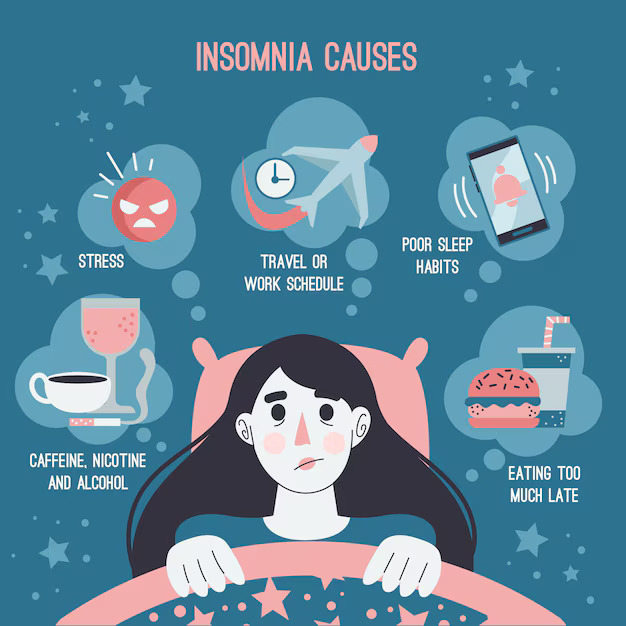Insomnia
Insomnia
In hypnosis, individuals are guided into a state of deep relaxation where they feel safe and supported. This relaxed state allows them to explore their thoughts and emotions surrounding sleep without the usual barriers or defenses, creating an opportunity for honest self-reflection.
Hypnosis enables access to the subconscious mind, where deeply rooted beliefs and patterns reside. Often, insomnia is influenced by subconscious factors such as stress, anxiety, or past experiences related to sleep. By tapping into the subconscious, individuals can uncover these underlying issues and work towards resolving them.
Hypnosis helps individuals recognize and challenge negative thoughts and beliefs that contribute to insomnia. This may involve identifying recurring thoughts like “I’ll never fall asleep” or “I need to sleep or I won’t function tomorrow” and reframing them into more balanced and realistic perspectives.

Hypnosis induces a state of deep relaxation, activating the body’s relaxation response and counteracting the physiological arousal associated with stress. This relaxation not only makes it easier to fall asleep but also reduces overall stress levels, making it less likely for stress to interfere with sleep.
Hypnosis guides individuals through imagery and suggestion to create positive associations with sleep and bedtime. By visualizing peaceful sleep environments, comfortable sensations, and feelings of relaxation, individuals can reprogram their minds to perceive sleep as a welcome and restorative experience.
Through hypnosis, individuals learn to anchor the relaxation response to specific cues or rituals associated with sleep, such as dimming the lights or getting into bed. By consistently pairing these cues with a state of relaxation, individuals can condition their minds and bodies to prepare for sleep automatically in response to these cues.
Hypnosis reinforces the importance of healthy sleep habits and routines. This may involve educating individuals about the significance of consistent bedtimes, creating a comfortable sleep environment, and avoiding stimulating activities before bed. By incorporating these practices into their daily lives, individuals can optimize their sleep quality.
Hypnosis helps individuals reinforce behaviors that promote sleep, such as establishing a calming bedtime routine or practicing relaxation techniques. By consistently engaging in these sleep-inducing habits, individuals create a strong association between bedtime rituals and sleep onset, making it easier to fall asleep naturally.
Hypnosis guides individuals through progressive muscle relaxation exercises to release physical tension and discomfort that may hinder sleep. By systematically relaxing each muscle group in the body, individuals can experience a profound sense of physical ease and comfort conducive to sleep.
For individuals experiencing pain or discomfort that interferes with sleep, hypnosis can provide relief by modulating the perception of pain and promoting relaxation. Through imagery and suggestion, individuals can learn to minimize the impact of pain on their ability to fall and stay asleep, improving overall sleep quality.


Hypnosis allows individuals to explore the emotional roots of their insomnia, such as stress, anxiety, or unresolved emotions. By delving into the subconscious mind, individuals can uncover and process underlying emotions that contribute to sleep disturbances, facilitating emotional healing and promoting better sleep.
Through guided imagery and visualization, hypnosis provides a safe space for individuals to express and release pent-up emotions that may be disrupting sleep. By acknowledging and releasing emotional tension, individuals can experience a profound sense of emotional relief and relaxation, paving the way for restful sleep.
Hypnosis guides individuals into a state of deep relaxation that mimics the physiological state of sleep. By inducing this state, individuals can experience restorative sleep that is characterized by slow-wave sleep and REM sleep, leading to improved sleep quality and overall well-being.
Hypnosis supports the natural sleep cycle by promoting the appropriate distribution of sleep stages throughout the night. By facilitating transitions between sleep stages, individuals can achieve a more balanced sleep architecture, leading to more restful and rejuvenating sleep.
